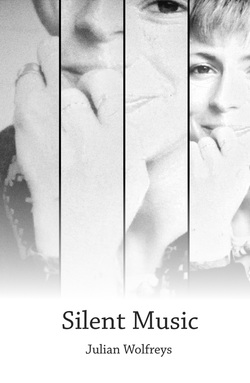Buy the paperback
Imprint: Triarchy Press (triarchy fiction)
Published: October 2014 320pp. ~ 15.3 x 23 cm (8" x 5") ~ Paperback ISBN: 978-1-909470-41-5 Price: £20.00 Tags: Music, dreams, memory, Derrida, hauntology. 
Brian Hinton MBE:
"This is a novel about time and regret, verbally exuberant, yet centring around moments quite beyond language. “The music has ended, remaining a memory, a silent music you once called it, that small space between the last note and the first pair of hands closing together”. Here is a fiction cunningly structured as musical form, a free form concerto, with prelude and coda..." David Malcolm, University of Gdansk: "Wolfreys excels at conjuring up landscapes, colors, sounds, shifts of light. The Isle of Wight has surely never had such a fine praise-singer." Read the full reviews here. Read more:
Read The Prelude from the novel
Read the reviews The Author Silent Music flyer Get the music Also by Julian Wolfreys Draping the Sky for a Snowfall Other Triarchy Fiction Titles: |
Silent Music
|

